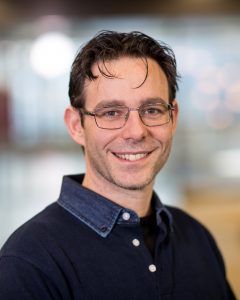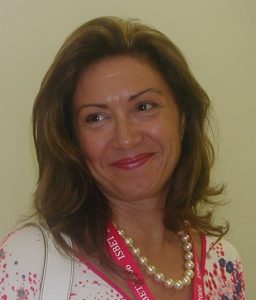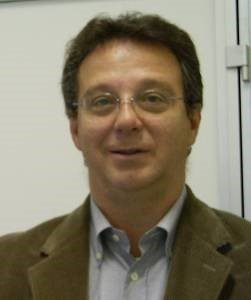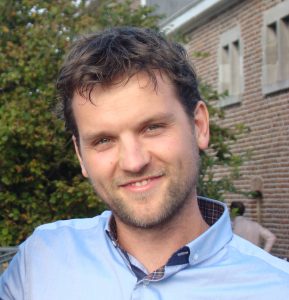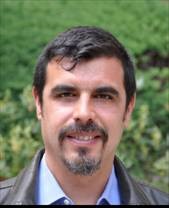Dr. Silvia Visentin, Ph.D.
Department of Woman’s and Child’s Health
University of Padua (IT)
Silvia Visentin holds a degree in Medicine and Surgery at the Faculty of Medicine and Surgery of the University of Padua in 2003, and specialization in obstetrics and gynecology at the gynecological Clinic of the University of Padua in 2009, obtaining the PhD in 2014 at the University of Udine in clinical sciences and technologies. She holds several teachings at the School of specialization in gynecology and obstetrics at the University of Padua and for the Bachelor degree in obstetrics at the University of Padua.
Her main research interests are intrauterine growth restriction, maternal-fetal Doppler, fetal surveillance, fetal in-uterus therapy, twin pregnancies, infectious diseases during pregnancy, premature birth. For her research activity she received more than 10 scientific awards. She has been coordinator of several multicentric studies on fetal well-being and a member of the editorial board of several magazines. She is author of more than 60 internationally indexed scientific publications.
◊ ◊ ◊
Prof. Vassilios Fanos
Neonatal Intensive Care Unit, Neonatal Pathology and Neonatal Section
Azienda Ospedaliera Universitaria and University of Cagliari (IT)
Vassilios Fanos is a full professor of Pediatrics and Director of the Post-Graduate School of Pediatrics of the University of Cagliari, the Director of the Neonatal Intensive Care Unit, Neonatal Pathology and Neonatal Section of the Azienda Ospedaliera Universitaria and University of Cagliari. He is a pediatrician, neonatologist, and hygienist. He is the editor-in-chief of the Journal of Pediatric and Neonatal Individualized Medicine (www.jpnim.com ), the official journal of the Union of European Neonatal and Perinatal Societies. He is a member of the International Perinatal Collegium and the president of the National Risk Management Committee of the Italian Pediatrics Society. He is a board member of the Italian Society of Neonatology and President of the Development Origin of Health and Disease Society of Italy. He is board member and elected president of Union Mediterranean and Midlle East Society, he is a board member and Chairman of the Educational Commette of the European Association of Perinatal Medicine. He is an assignee of European and national research projects, the speaker and moderator at many international congresses and the organizer of congresses (among which the annual International Workshop on Neonatology in Cagliari, now in its 12th edition). He has organized and held refresher courses, has edited for numerous international agencies in the field of project financing, and refereed for more than 50 international medical journals. He has authored over 500 scientific articles, of which more than 320 are present in PubMed. Up to now, he has published 23 books as the author and editor for Humana Press (Springer), Mondadori, Franco Angeli, Agorà, Biomedia Source Books, and Hygeia Press. He won about 10 millions Euros in 5 research projects (2 European, 2 Italian, 1 Regional). He is considered one of the major experts in the field of clinical metabolomics in perinatal and pediatric medicine. At present he is participating in more than 100 studies on metabolomics with researchers from 20 different countries.
◊ ◊ ◊
Dr. Roberto Tumbarello, Ph.D.
Complex Structure of Pediatric Cardiology
Hospital G. Brotzu
Cagliari (IT)
Degree in Medicine and Surgery at the University of Cagliari (Magna cum Laude) in 1982 and specialization in Pediatrics (Magna cum Laude) in 1986, in cardiology in 1990 and in radiology in 1995 at the same university. He worked as intern in 1992 at the Center for Pediatric Cardiology and fetal echocardiography at the University of San Diego, California. In 1995 he was qualified to practise the medical profession in Canada and enrolled in the “College of physicians and Surgeons of Ontario” (License No. 68687). From 1994 to 1996 he was “clinical Fellow” in pediatric cardiology at the cardiology division of the Hospital for Sick Children in Toronto.
He has been and still is responsible for several research projects in the field of teleconsulting technologies for cardiology, and is one of the leading experts in fetal echocardiography in Italy. His research and specialization interests range from prenatal and pediatric cardiology to adult congenital heart disease. Other aspects include cardiology teleconsultation and hemodynamic activity. He is a member of SICP – Italian Society of Pediatric Cardiology, ANMCO – National Association of Hospital Cardiologists and PCRF-the Palestine Children’s relief Fund.
He has a vast experience as a lecturer in thematic conferences and speaker/moderator and more than 60 scientific publications on the mentioned topics.
◊ ◊ ◊
Dr. Francesca Frexia
Healthcare Flows Research Program / Data-intensive Computing Sector
CRS4 – Centro di Ricerche, Sviluppo e Studi Superiori della Sardegna, Pula (IT)
Since graduating with a degree in Biomedical Engineering from the University of Genoa, Francesca Frexia has been studying the opportunities and problems arising from the application of computing science to medicine, working on interoperability, traceability, telemedicine and modeling of data and processes in the clinical context. In her 15 years of research experience she has cultivated ongoing collaborations with public and private organizations, including research institutions, hospitals and industries operating in health IT, with particular attention to production-grade implementations in clinical practice. She leads the Healthcare Flows Research Program at CRS4 and she is part of the Technical Committee for Pathology and Laboratory Medicine in the Integrating the Healthcare Enterprise consortium, the international organization for the development of guidelines to increase interoperability between clinical systems, with the aim of improving quality and safety in healthcare processes.
◊ ◊ ◊
Dr. Mauro Del Rio
Healthcare Flows Research Program / Data-intensive Computing Sector
CRS4 – Centro di Ricerche, Sviluppo e Studi Superiori della Sardegna, Pula (IT)
Mauro Del Rio received the M.Sc. degree in Electronic Engineering from the University of Cagliari in 2005. In 2006 he joined the Digital Media Applications group at CRS4. Here he took part to the development of tools and applications for managing multimedia files. Since 2013 he has been working with the Healthcare Flows group. He deals with Telemedicine and distributed computing of clinical data.
◊ ◊ ◊
Dr. Vittorio Meloni
Healthcare Flows Research Program / Data-intensive Computing Sector
CRS4 – Centro di Ricerche, Sviluppo e Studi Superiori della Sardegna, Pula (IT)
Since the degree in Computer Science from the Cagliari University in 2008, he deals with research and development in the area of Clinical Informatics and Biomedicine. He has worked since 2010 in the Healthcare Flows group, where he is involved in design and development of application focused on real-time telemedicine and integration among clinical domains. In particular, in the context of telemedicine, he participated in the creation of a prototype for ultrasound teleconsultation. Regarding interoperability, he collaborated to the implementation of traceability systems for clinical processes, acquiring a deep knowledge of international standards and guidelines of the field, like HL7 and IHE. He is the main developer of HL7apy, an open-source Python package to handle HL7 v2 messages and he participated as Monitor to the IHE Connecthathon in 2017.
Dr. Rick Bezemer, Ph.D.
Senior Scientist
Program Lead Perinatal Care Solutions
Philips Research, Eindhoven (NL)
Rick Bezemer obtained his MSc degree in Physics in 2010 at the University of Amsterdam, his PhD degree in 2011 at the Faculty in Medicine (Academic Medical Center) of the University of Amsterdam, and he has been co-promotor twice in 2012 and once in 2013, 2014, 2015, and 2018. Research topics during his PhD and post-doc phase included: peri-operative and intensive care; cardiovascular, microcirculatory, and renal physiology; and fluid management support. In 2013, Rick moved to Philips Research, Eindhoven, to work as project leader at the department of Patient Care & Measurements, focusing primarily on peri-operative and intensive care solutions. Recently, in 2017, Rick moved to the department of Fertility, Pregnancy, and Parenting, to lead the program on Perinatal Care and Parenting Solutions. Primary focus areas here are neonatal intensive care, transitional and remote care, and home care solutions for professionals, parents, and their newborns.
 Prof. Reza Sameni, Ph.D.
Prof. Reza Sameni, Ph.D.
Associate Professor
School of Electrical & Computer Engineering,
Shiraz University, Shiraz, Iran
Reza Received a Bachelor’s degree in Electronics Engineering from Shiraz University, Iran, in 2000, a Master’s degree in Bioelectrical Engineering from Sharif University of Technology, Iran, in 2003, and a joint Ph.D. degree in Signal Processing and Bioelectrical Engineering from the Institut National Polytechnique de Grenoble (INPG), France, and the Sharif University of Technology, in 2008. He is currently an Associate Professor tenured faculty member at the Department of Electrical and Computer Engineering, Shiraz University and a Senior Member of the Institute of Electrical and Electronics Engineers (IEEE). His research interests include statistical signal processing, with special interest in modeling, filtering and analysis of fetal cardiac signals from noninvasive maternal abdominal recordings. He has coauthored more than 55 articles published in peer-reviewed journals and conferences and holds several national and international academic awards in teaching and research. Dr. Sameni has also worked in industry and startup companies on the design and implementation of digital electronics systems and digital signal processing algorithms, especially for fetal cardiac monitoring and other biomedical applications, over the past 18 years..
Dr. Laura Burattini, Ph.D.
Department of Information Engineering
Polytechnic University of Marche (IT)
Laura Burattini received the PdD degree in Electrical/Biomedical Engineering at the University of Rochester (USA) in 1998 and the Master degree in Electrical/Biomedical Engineering at the Politecnico di Milano (Itay) in 1993. After the PhD she made some working experience in private companies. Since 2006 she joints the Department of Information Engineering of the Università Politecnica delle Marche where she is currently faculty member as Assistant Professor. She teaches the courses of “Bioengineering” (Bachelor Degree) and “ Biomedical Signal and Data Processing” (Master Degree), and is responsible of the “Cardiovascular Bioengineering Lab”. She is promoter of the Erasmus exchange with University of Leiden (The Netherlands) and University of Saragoza (Spain). She contributed to found B.M.E.D. Bio-Medical Engineering Development srl, an academic spin-off that she served as CEO and President from 2012 to 2016. She is currently in the Editorial Board of The Journal of Electrocardiology and The Open Biomedical Engineering Journal. Her main research interests are processing of cardiovascular signals , specifically for the identification of non-invasive indexes of cardiovascular risk, like T-wave alternans. She is also particular active in fetal applications related to both fetal electrocardiography and cardiotocography. She is author more than 50 journal papers and 80 proceedings.
◊ ◊ ◊
Prof. Massimo Mischi, Ph.D.
Department of Electrical Engineering,
Signal Processing Systems Group, Diagnostics Research Lab,
Eindhoven University of Technology (NL)
Massimo Mischi received the M.Sc. degree in Electronic Engineering at La Sapienza University of Rome (Italy) in 1999. In 2004, he received the Ph.D. degree from the Eindhoven University of Technology (TU/e, the Netherlands). In 2011, he became associate professor and since 2018 he is full professor at the Electrical Engineering Faculty of the TU/e. Since 2013, he is director of the Biomedical Diagnostics Research Lab of the TU/e (www.bmdresearch.nl), and since 2014 he coordinates the Healthcare Research program of the Electrical Engineering Faculty (TU/e). His research focuses on model-based quantitative analysis of biomedical signals and images, spanning from heart and muscle electrophysiology up to ultrasound and magnetic-resonance imaging. He was awarded with the STW VIDI Grant in 2009 and with the ERC Starting Grant in 2011 for his research on contrast-enhanced ultrasound imaging of angiogenesis for cancer diagnostics. Massimo Mischi has (co)authored over 100 journal papers and 200 conference contributions. He is Senior Member of the IEEE, Chairman of the IEEE EMBS Benelux Chapter, Secretary of the Dutch Society of Medical Ultrasound (EFSUMB Section), and board member of the ESUI (Urological Imaging Section of the European Association of Urology). He also serves as associate editor for the IEEE Transactions on Ultrasonics, Ferroelectrics, and Frequency Control and for the Journal BioMedical Engineering and Research (IRBM) published by Elsevier.
◊ ◊ ◊
Prof. Silvia Comani, Ph.D.
BIND – Behavioral Imaging and Neural Dynamics Center
Dept. of Neuroscience, Imaging and Clinical Sciences
University “G. d’Annunzio” of Chieti-Pescara (IT)
Silvia Comani is Associate Professor of Applied Physics and Director of the BIND – Behavioral Imaging and Neural Dynamics Center (www.bindcenter.eu) at the University “G. d’Annunzio” of Chieti-Pescara (Italy). Prof. Comani is affiliated to the Department of Neuroscience, Imaging and Clinical Sciences of the University “G. d’Annunzio”, and is Scientific Consultant for Translational and Technological Innovation in Neuroscience at the private hospital “Casa di Cura Villa Serena”, Città S. Angelo (Pescara, Italy). Prof. Comani is the primary coordinator of the ANDREA European Project “Active Nanocoated DRy-electrode for Eeg Applications” (www.andreaproject.eu).
Prof. Comani received the Italian Degree of Doctor in Physics in 1979 at the University of Bologna (Italy), and the PhD degree in Physics in 1985 at the Catholic University of Louvain-la-Neuve (Belgium). Her main research interest regards biomedical signal processing with focus on the development of novel analytical methods and the application of existing method for the evaluation of functional and effective connectivity in the adult and infant brain. Main fields of research application are: perinatal cardiology and neuroscience, adult neuroscience, behavioral dynamics, motor behavior and neuro-motor rehabilitation. Prof. Comani is author of more than 100 scientific articles published in International peer-reviewed scientific journals, and serves as reviewer for 27 International peer-reviewed scientific journals.
Prof. Comani teaches courses of Physics and Biomechanics, has had more than 2000 Bachelor and Master students, and has supervised more than 10 PhD and post-doc researchers.
◊ ◊ ◊
Prof. Giovanni Magenes, Ph.D.
Department of Industrial and Information Engineering
University of Pavia (IT)
Giovanni MAGENES is full professor of Biomedical Signal and Image Processing at the University of Pavia, Faculty of Engineering. He graduated cum laude in Electronic Engineering in 1981 at the University of Pavia and obtained the PhD in Biomedical Engineering at the Polytechnic of Milano in 1988. He spent two years in France (1987 at INSERM – Lyon and 1988 at Université de la Mediterraneé – Marseille) as post doc fellow. Since 1991 he is with the Faculty of Engineering at the University of Pavia, where, from 2007 to 2012, he was the Director of the Department of Computer and System Science.
Giovanni Magenes is author of more than 180 international publications in the field of Biomedical Engineering, with emphasis on signals and image processing. His expertise ranges from the models of sensorimotor systems to the design of life-like perceptive system, from the application of control theory in biological systems to the application of soft computing methods and AI techniques in medicine.
◊ ◊ ◊
Prof. Maria Gabriella Signorini, Ph.D.
Department of Electronics, Information and Bioengineering
Politecnico di Milano (IT)
Maria G. Signorini is Associate Professor at Department of Electronic, Information and Bioengineering, Politecnico di Milano since 2003. At the same University, she obtained the Ph.D. in Biomedical Engineering. 1996-98 she had a Post Doc fellowship at the Biomedical Engineering Dept and in 1999 she became Research Assistant. 2004 -2014 she served as Coordinator of the Biomedical Engineering PhD track at the Doctorate School of the Politecnico di Milano.
Since 2014 she has been charged by the Italian Government as one of the nine members of the national Committee of Experts for the Policy of the Research (CEPR) at the Ministry of the University and Research (MIUR).
Her main research field is focused on biomedical signal processing for extraction of new clinical and diagnostic knowledge. Final goal is to improve healthcare paths and medical devices by introducing both new methodological approaches and technological solutions. She developed application of nonlinear chaotic system and applications of nonlinear analysis to biomedical time series The introduction of nonlinear indices in the analysis of cardio (and neuro also) time series produced original results demonstrating possible improvements of the methods and systems applied to cardiovascular time series analysis and classification. More recently her activity is devoted to multiparameter approaches integrating linear and nonlinear parameters towards the prediction of risk in antepartum fetal monitoring, premature babies, dialysis patients and others cardiovascular disease states. Some research results have been translated into technological solutions with modification of existing instrumentations and biomedical devices (Cardiotocography, Dialysis) or design of new instrumentation (wearable fetal HR monitoring).
Maria G. Signorini participates to many research projects both as principal investigator and co-investigator. She has been PI and National Coordinator of the project MIUR PRIN 2010-12: “TELEFETALCARE: Project of a wearable system for the remote monitoring of the fetus during pregnancy”. The project obtained attention by media in Italy: – www.ansa.it: “Ricerca: una maglietta ‘intelligente’ tra Politecnico e MIT (Research. An intelligent t-shirt between Politecnico and MIT”; www.youtube.com: “Telefetalcare: the first prototype of a fetal wearable electrocardiograph”.
In 2012, Telefetalcare project won the first prize at the “element14 Medical Design Award”, competition on Biomedical Devices by Farnell. Maria G Signorini serves as Referee for several Scientific Journals in the field. (IEEE-EMBS Trans., Physiol. Measur, Chaos, Biom Eng &Comp, …). Since 2007 she is Associate Editor for the IEEE-EMBS Conference, Theme: Biomedical Signal Processing.
Bibliometry : Scopus: 172 documents, 2052 citations, H-index: 23.
Prof. Patrice Abry, Ph.D.
Signal, System and Physics statistical signal processing research group
Physics Department
Ecole Normale Supérieure de Lyon (FR)
Patrice Abry is today « Research Director » for CNRS at Ecole Normale Supérieure de Lyon, France, here he is in charge of the « Signal, System and Physics » statistical signal processing research group, within the Physics department. He received the degree of Professeur-Agrégé de Sciences Physiques, in 1989, at Ecole Normale Supérieure de Cachan and the Ph. D. degree in physics and signal processing from the Claude-Bernard University, Lyon, France, in 1994.
Patrice Abry has developed a long standing research program dedicated to the statistical multiscale analysis for the modeling of scale-free phenomena, with strong interest in researches integrating theoretical and applied developments in real-world applications, ranging from hydrodynamic turbulence to Internet traffic, heart rate variability, or neurosciences. He is the author of a book on wavelet, scale invariance and hydrodynamic turbulence and is also the coeditor of a book entitled Scaling, Fractals and Wavelets. Dr. Abry received the AFCET-MESR-CNRS prize for best Ph.D. in signal processing 1993–1994 and serves inn the IEEE SPS SPTM Committee since 2014. He is also an IEEE fellow.
perso.ens-lyon.fr/patrice.abry/ – patrice.abry@ens-lyon.fr
◊ ◊ ◊
Dr. Chiara Rabotti, Ph.D.
Department of Electrical Engineering
Signal Processing Systems Group, Diagnostics Research Lab
Eindhoven University of Technology (NL)
Chiara Rabotti obtained the M.Sc. degree in Electrical Engineering at the University of Florence (Italy) in 2004. She received the Ph.D. degree from the Eindhoven University of Technology (TU/e) with a thesis on the characterization of uterine activity by electrohysterography. This research, in collaboration with the Máxima Medical Centre (MMC), Veldhoven formed the basis for a spin-off venture, Nemo Healthcare, aiming at the realization of a system for pregnancy monitoring. She actively contributed to the project proposal that in 2010 was awarded a European ErasysBIO grant for modelling and standardization of electrohysterographic measurements during pregnancy, which was one of the main focusses of her Postdoctoral activity. She is currently assistant professor at the Eindhoven University of technology, Signal Processing Systems group and board member of the Biomedical Diagnostic team. Her idea on the possibility of improving In vitro fertilization by characterization of uterine contractions was awarded in 2012 with a personal grant (STW/Veni) and an STW-HTSM grant in 2014, focusing on characterization by electrohysterography and ultrasound quantification, respectively. Currently co-author of over 60 publications, her research interests include electrophysiological signal processing and modelling with special focus on neuromuscular- and perinatal- related applications.
◊ ◊ ◊
Dr. Michiel Rooijakkers, Ph.D.
Bloom Technologies
San Francisco, CA (USA)
Michiel Rooijakkers obtained the M.Sc. degree at the University of Technology Eindhoven (TU/e), in 2010. During his Masters he researched the use of wavelet transforms in fetal heart rate variability analysis during an internship at the Máxima Medical Centre in Veldhoven, The Netherlands. His master thesis on “Ultra-low-power R-peak detection, allowing for a trade-off between detection quality and power consumption” was written during an internship at Philips Research. In October 2017 he obtained his PHD degree at the Eindhoven University of Technology with a thesis on “Continuous ambulatory pregnancy monitoring”. The focus of this multi-disciplinary research topic involves applying, implementing, and optimizing signal processing techniques for a low power wearable system to determine the health of a fetus and the progression of pregnancy using sensors placed on the maternal abdomen. Currently, he is leading signal processing at Bloomlife where his interests continue to be sparked by research in and development of smart at-home ambulatory monitoring products to allow pregnant women to monitor their pregnancy at home, offering the future parents and their care takers more insight into the maternal and fetal health.
◊ ◊ ◊
Prof. Riccardo Barbieri, Ph.D.
Department of Electronics, Information and Bioengineering
Politecnico di Milano (IT)
Riccardo Barbieri received the M.S. degree in Electrical Engineering from the University of Rome “La Sapienza”, Rome, Italy, in 1992, and the Ph.D. in Biomedical Engineering from Boston University, Boston, MA, in 1998. He is Associate Professor at the Politecnico di Milano, and Research Affiliate at the Massachusetts General Hospital. His broad research interests are in the development of signal processing algorithms for the analysis of biological systems. He has focused his studies on computational modeling of neural information encoding, and on application of nonlinear and multivariate statistical models to characterize heart rate variability and cardiovascular control dynamics. He is author of more than 100 peer-reviewed publications in these fields since 1994. Prof. Barbieri is a Member of the American Association for the Advancement of Science, the European Society of Hypertension, the Society for Neuroscience, and Senior Member of IEEE and the Engineering in Medicine and Biology Society.
◊ ◊ ◊










